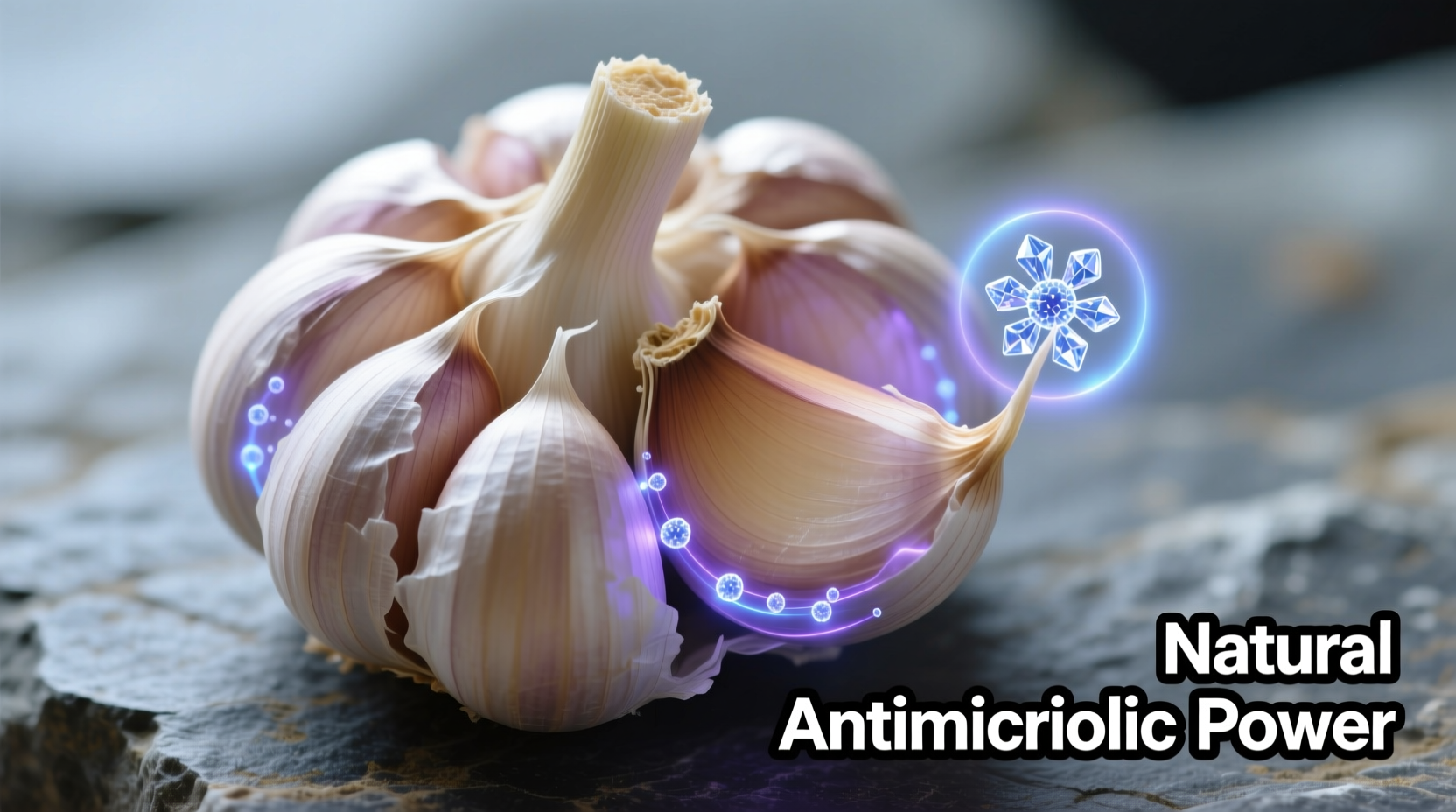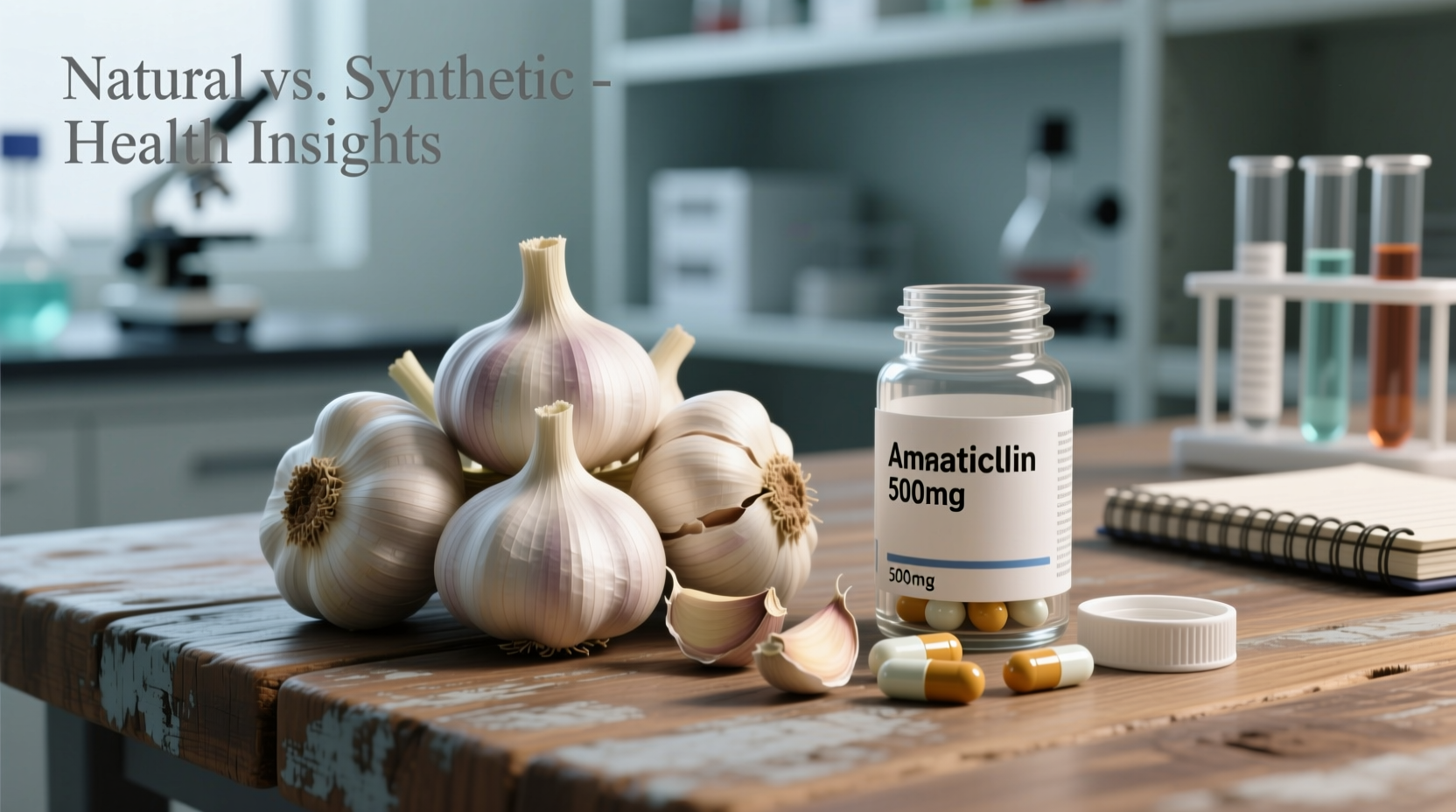Garlic's Natural Defense Compounds Explained
When you crush or chop fresh garlic, it releases allicin—the primary compound responsible for its distinctive smell and studied antimicrobial effects. This biochemical reaction occurs when alliinase enzymes interact with alliin, creating compounds that demonstrate activity against certain bacteria, viruses, and fungi in laboratory environments.
Unlike prescription antibiotics designed to target specific bacterial mechanisms with precise dosing, garlic's effects are more generalized and significantly less potent. The concentration of active compounds in dietary garlic falls far short of therapeutic antibiotic levels needed to eliminate established infections in the human body.
What Scientific Research Actually Shows
Numerous laboratory studies have investigated garlic's antimicrobial properties. A comprehensive review published in Phytotherapy Research analyzed multiple studies and found that garlic extract demonstrated inhibitory effects against various bacteria including Staphylococcus aureus and E. coli—but only at concentrations much higher than what's achievable through normal dietary consumption.
| Characteristic | Medical Antibiotics | Garlic Compounds |
|---|---|---|
| Development Process | Rigorous clinical trials and FDA approval | No standardized medical testing |
| Dosing Precision | Exact therapeutic concentrations | Variable, unpredictable levels |
| Effectiveness Against Infections | Proven treatment for bacterial infections | Supportive role only, not treatment |
| Regulatory Oversight | Strict pharmaceutical regulations | Classified as food/dietary supplement |
The National Center for Complementary and Integrative Health (NCCIH) states: "While laboratory studies suggest garlic may have some antibacterial properties, there's no evidence that eating garlic can treat or prevent bacterial infections in people." Their research review confirms that garlic supplements don't replace antibiotic treatment when medically necessary.

Practical Health Considerations
Garlic can be a valuable component of a health-supportive diet. Regular consumption may contribute to overall immune function and offers other potential health benefits. However, understanding its limitations is crucial for making informed health decisions.
When garlic might provide supportive benefits:
- As part of a balanced diet for general immune support
- For minor upper respiratory symptoms in early stages
- As a culinary ingredient with potential cardiovascular benefits
When medical antibiotics are necessary:
- Diagnosed bacterial infections (strep throat, UTIs, pneumonia)
- Moderate to severe infections
- When infection shows no improvement or worsens
The Centers for Disease Control and Prevention (CDC) emphasizes that inappropriate use of antibiotics—including substituting unproven alternatives when antibiotics are medically necessary—contributes to the global crisis of antibiotic resistance. Never delay or replace prescribed antibiotic treatment with garlic or other natural remedies without consulting your healthcare provider.
Maximizing Garlic's Potential Benefits
To optimize the beneficial compounds in garlic:
- Crush and wait: Chop or crush garlic and let it sit for 10 minutes before cooking to maximize allicin formation
- Use raw when appropriate: Raw garlic preserves more active compounds (add to dressings or dips)
- Pair with healthy fats: Compounds in garlic are fat-soluble, so combining with olive oil enhances absorption
- Store properly: Keep whole bulbs in a cool, dark place to maintain potency
Remember that fresh garlic provides more potential benefits than processed garlic products. Commercial garlic supplements vary widely in their active compound content and aren't regulated to the same standards as pharmaceuticals.
Important Considerations and Limitations
Garlic may interact with certain medications including blood thinners, HIV medications, and some birth control pills. If you're taking prescription medications, consult your healthcare provider before significantly increasing garlic consumption or taking garlic supplements.
While laboratory research continues into potential medical applications of garlic compounds, current evidence doesn't support using garlic as an alternative to antibiotics for treating infections. The World Health Organization recognizes the growing threat of antibiotic resistance and stresses the importance of appropriate antibiotic use under medical supervision.











 浙公网安备
33010002000092号
浙公网安备
33010002000092号 浙B2-20120091-4
浙B2-20120091-4